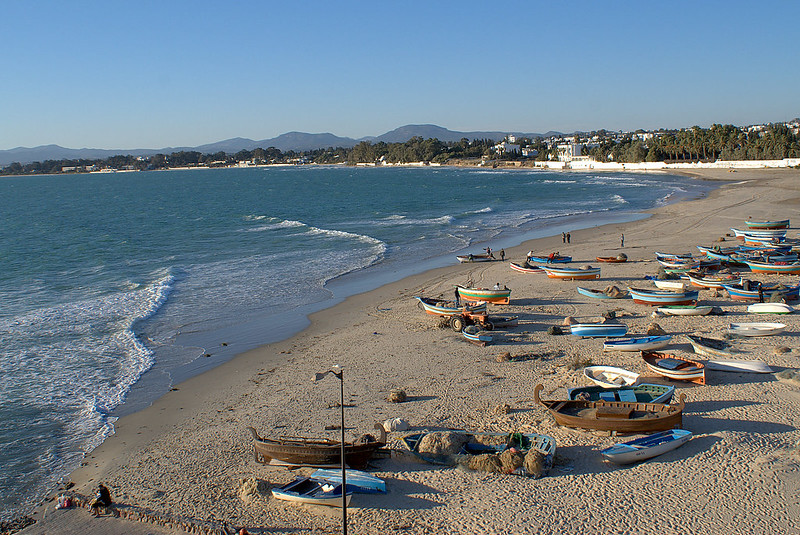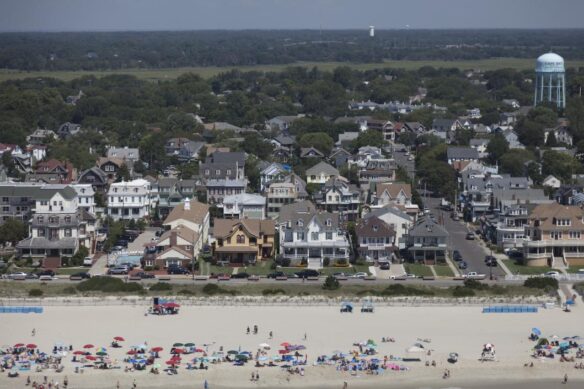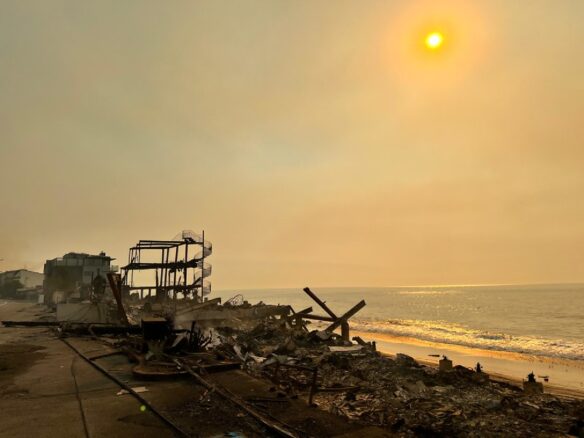Excerpt:
Rising sea levels are causing Tunisia’s beaches to gradually disappear. This is making life hard for the country’s tourism and fishing industries.
The Maghreb – made up of Morocco, Tunisia, Algeria, and Libya – is more affected by coastal erosion than any region outside South Asia, the World Bank found in a 2021 study.
Among these countries, Tunisia has had the highest erosion rates in the last three decades, averaging almost 70cm a year, it found.
At least 85 percent of Tunisia’s population of more than 12 million lives by the coast. This is more than double the global average of about 40 percent,…As a result, the country is disproportionately affected by coastal erosion. So, why is it happening and what impact is it having on local communities?
Rising sea levels, primarily caused by global warming-induced ice melt and rising water temperatures, are one of the main culprits for coastal erosion. As Tunisian beaches are eroded, fishermen in the coastal town of Ghannouch say their boats and nets are increasingly getting damaged by rocks as they go out to sea.
“The beach sand is significantly reduced and rocks are appearing there instead,” says Mohamed Ali, 39, a fisherman in the town, located about 400 km south of Tunis.
“I had my boat damaged several times. It is becoming difficult to go to the sea and fish,” the father-of-four adds.
Ali says he makes about $300 (€283) per month fishing, but his income is 20 percent lower than in previous years before coastal erosion became a major factor. He is one of about 600 fishermen in Ghannouch.
Sassi Alaya, the head of the fisheries guild in the town’s southern port, says that half of the local fishermen have been affected along the most eroded areas of the coastline.
Nearly half of Tunisia’s 670 km of beaches were acutely threatened by coastal erosion as of 2020 – a figure that has more than tripled since 1995 – according to the Tunisian State Agency for Coastal Protection and Planning (APAL).
On the island of Djerba – about 110 km south of Ghannouch – 52-year-old fisherman Al-Akhdar Ahmed says his income has halved over the last decade due to the shrinking beaches. He now earns just $250 (€236) a month from fishing.
“Rocks are now surrounding about 18 kilometres of the coast of the island, destroying the livelihoods of hundreds of fishermen there,” he says…









